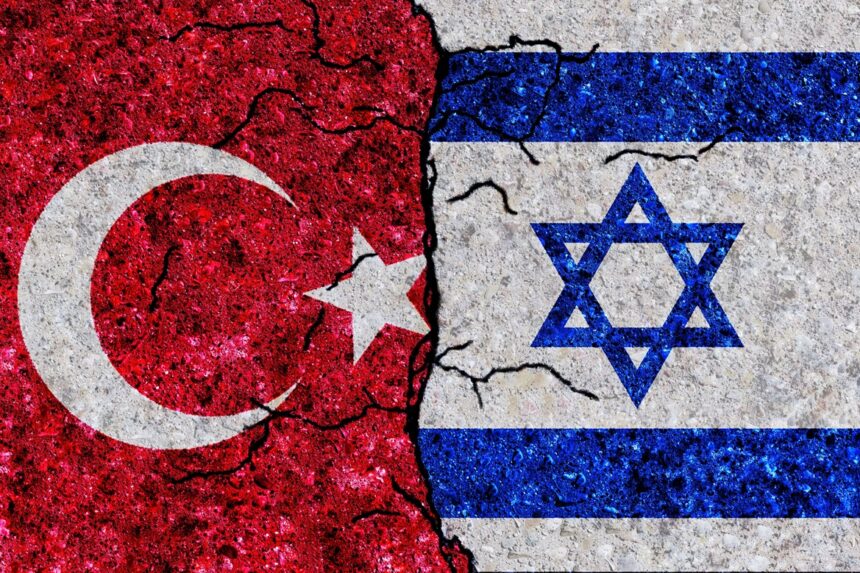Every few months — particularly during times of regional tension — a familiar debate resurfaces online: Could Turkey defeat Israel in a total war, or would the opposite be true? The internet floods with speculation, bravado, and sweeping generalizations. Some claim Israel’s high-tech military and U.S. support would easily overpower Turkey. Others argue that Turkey’s vast army, strategic depth, and growing defense industry make it the more formidable force. But the truth, as always, lies somewhere in between — and deserves a more serious, less emotional look.
Let’s be clear: both countries are among the most capable military powers in the region — but they are strong in very different ways.
Israel’s advantage is clear: it possesses some of the most advanced airpower in the world, including U.S.-built F-35 stealth fighters and a highly sophisticated, multi-layered missile defense system. These capabilities are not merely theoretical — they have been repeatedly tested in real combat, most recently during Israel’s large-scale military operations in Gaza following the Hamas attacks of October 2023, operations that have drawn widespread international condemnation over the scale of civilian casualties. Add to that Israel’s world-class intelligence apparatus, cyber capabilities, and the unwavering military support it receives from the United States, and you have a force that is punch-for-punch among the most effective in the world. And none of this exists in a vacuum — Israel operates under a protective umbrella provided by the United States and the broader Anglo-American security system. It is, in many ways, a frontline outpost of that system in the Middle East.
Turkey, on the other hand, brings something different to the table. With a population nearly nine times the size of Israel’s and one of the largest standing armies in NATO, Turkey has a serious manpower advantage. Its infantry is not only large but highly experienced — forged in decades of counterinsurgency operations, cross-border campaigns in Syria and Iraq, and peacekeeping missions across the globe. On top of that, over the past decade, Turkey has significantly reduced its dependence on foreign suppliers by rapidly developing a robust domestic defense industry And unlike many of its neighbors, Turkey produces much of its own defense technology, from drones and naval ships to tanks and missile systems. It’s also building toward fifth-generation air power with its indigenous KAAN fighter jet project.
Last but not least, in contrast to Israel, Turkey’s large and dynamic population and expansive territorial depth provide it with considerable strategic advantages — enabling a high degree of operational flexibility and endurance unmatched by most regional and global actors.
So, could these two powers actually go to war?
Today, the answer is almost certainly no — not because of diplomacy or shared values, but because the global order still works to prevent it. The United States would never permit an open conflict between two of its most strategically important regional partners. Israel, for all its military confidence, does not want to fight a war of attrition with a country as large and self-sufficient as Turkey. And Turkey, despite its growing assertiveness, is not interested in a war that would trigger a major NATO or U.S.-led backlash.
But what about the long term?
That’s where things get more uncertain — and perhaps more dangerous. As the post-Cold War international order begins to fray, and as U.S. global dominance is increasingly questioned, new realities may emerge. If Israel were ever to lose the strategic umbrella provided by the United States and its Anglo-Saxon allies — whether through American decline or a shift in U.S. priorities — it would face the challenge of maintaining its regional position on its own terms.
This is a critical point that often gets overlooked: Israel’s safety, security, and even its continued existence are deeply tied to the hegemony of Anglo-Saxon power — namely, the dominance of the United States and its closest allies. And here’s the irony: that very hegemony relies significantly on Turkey. Turkey’s control of strategic waterways, its geopolitical position at the intersection of Europe, the Middle East, and Central Asia, and its influence across the Muslim world make it indispensable to the Western order. As long as the Anglo-American powers aim to preserve and project their global leadership, they will work — whether overtly or discreetly — to prevent a direct military conflict between Turkey and Israel. It’s not just about avoiding war; it’s about maintaining a system of control.
But if that system begins to unravel — and Israel, no longer shielded by its traditional patrons, starts projecting power more aggressively near Turkey’s borders — the prospect of open conflict, once unthinkable, could become a real possibility. This becomes even more plausible in a post-Erdoğan Turkey, one no longer led by a figure who, despite his rhetoric, often acted as a stabilizing and cooperative counterpart in relation to Israeli interests. If both nations come to view each other through the lens of existential threat or zero-sum competition, the conditions for confrontation could materialize rapidly.
To be clear, we are not there yet. But we are entering an era where old assumptions — that Israel will always be protected, that Turkey will always be constrained — may no longer apply. If a total war were to break out under the conditions outlined — particularly in a scenario where Israel loses the protection of Anglo-Saxon dominance — the strategic landscape could shift dramatically. In such a case, other Arab or Muslim-majority countries, long restrained by geopolitical realities, might be more inclined to align themselves with Turkey, either directly or indirectly. What once seemed like an isolated conflict could quickly take on the shape of a broader regional war, driven not only by national interests but by shared historical, religious, and ideological grievances.
Such a scenario could, in the most extreme case, threaten the very survival of the Israeli state. A full-scale regional war — particularly one unfolding without the restraining influence of Western hegemony — could rapidly escalate into a catastrophic humanitarian crisis. For many Israelis, it might evoke fears of widespread ethnic violence or even a second Holocaust — potentially on an even more devastating scale. While such an outcome remains improbable, its mere possibility highlights the existential stakes at play and the dangerous fragility of the current regional order.
That’s why the question of who would win such a war, while hypothetical, is still important. Not because we want it to happen — but because understanding the strategic logic behind it helps us understand the shifting balance of power in the Middle East and beyond.
And perhaps more importantly, it reminds us that peace is not the natural state of things. It is the outcome of a fragile balance — one that must be actively managed, not just assumed.







